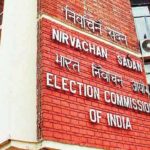1.Tell me something about yourself?
Generally this is the first question which is put up in front of the candidate appearing in the interview. To answer this, the candidate must tell his name, place of residence and his current work or educational degree along with a very brief note on his family-father, mother and siblings. He/she can also tell about his father or mother’s occupation.
Some key points to note here are:-
He must know the meaning of his name and specific reference with his name if any. For ex:- a boy named “Prashant” was asked about the geographical connection of his name i.e. Prashant Mahasagar or Pacific Ocean.
The answer should be precise and questions like- if your father is a teacher then why do you want to become a banker? can come up from your answer to the first question. Be prepared with the answers to these expected questions.
Because this is the first question so the candidate must give a short and effective answer. You might be nervous at the beginning but remember to keep a smile on your face.
2.Where have you come from and what is famous in your city?
The candidate must tell about his place of living- city and state. If the board further asks about any specifications, then name of the district etc. should be told. He/she must tell about the famous things of his place. For ex:- a candidate from Lucknow may tell about Imambara, chicken clothes, “tehzeeb” of Lucknow etc.
The key things to deal this question effectively are:-
– The candidate must know about the local MLA and MP from his area. If any renowned personality belongs to that area, you should be aware of the details.
– He must have full knowledge about that place, its history, famous monuments, personalities, rivers, at times even number of railway stations in the city etc., also about the politics of that state-CM and ruling party and all other nitty gritties of his place.
For ex: – A candidate from Ghazipur, U.P. was asked about cultivation of “Poppy seeds” as Ghazipur is famous for cultivation of poppy seeds.
– At times, questions about local politics are also put forward like a candidate, from Amethi was asked about the electoral battle between Rahul Gandhi and Kumar Vishwas form Amethi.
– A good answer to such questions leaves a very positive impact on the board as it demonstrates your awareness about the surroundings and the fact that you are well prepared puts you ahead of others.
3.Why do you want to join the banking industry?
To answer this question, you can say something like –“I want to join this industry because it can provide me a stable career with good growth prospects. It is one of the fastest growing sectors of the nation and provides great career opportunities.
There could be many other reasons for you wanting to join the bank industry for e.g. it is an honest organization, good working conditions, chances to directly interact with public etc. The choice of reason could be anything that suits you as a person.
This is a very commonly asked question and you must be prepared to answer it.
4.Who is the governor of RBI?
As of today (March’14), you can answer this as, Mr. Raghuram Govind Rajan is the 23rd governor of RBI. Before taking reins as RBI governor he was an officer on special duty in RBI. He has also served as economic advisor in PMEAC. His tenure is of 3 years ending in September 2016.
Key points:-
– In IBPS interviews, you must have a quick read about the prominent personalities of banking industry, especially governor and deputy governors of RBI.
– You must address the name of personalities by using Mr. or Madame in case of male and female respectively.
– Try to keep yourself updated about the recent happenings of at least the month prior to interview.
5.What is a Non -banking Financial Company (NBFC)?
Difference between NBFC and banks?A NBFC is a company registered under the companies act, 1956 which is involved in the business of loans, shares/stocks, etc. Non-banking financial companies are financial institutions that provide banking services, but do not hold a banking license. These institutions are not allowed to take deposits from the public. NBFCs do offer all sorts of banking services, such as loans and credit facilities, retirement planning, money markets, underwriting, and merger activities. The basic difference between bank and NBFC is:-
– They can’t accept demand deposits.
– They are not a part of the payment and settlement system and can’t issue cheques drawn on themselves
– They are not registered in the banking act and don’t have a banking license.
– They don’t have to maintain CRR, SLR or CASA like banks.
6.What is the difference between nationalized banks and private banks?
A nationalized bank is owned by the govt. of that country and is also known as public sector bank whereas a private sector bank is owned by an independent individual or company.
7.What is Para Banking?
Para Banking includes all the services provided by banks apart from day to day banking. For example: – Debit cards, Credit cards, Life Insurance products, Cash Management services etc.
8.What are the components of the monetary policy of RBI?
The components of monetary policy include CRR, Repo rate, reverse repo rate, SLR, MSF and Bank Rate.
9.What is the difference between Micro finance and micro credit?
Micro credit is giving a small amount of loan to the customers whereas Micro Finance is a wide term. It includes small loan + training on financial matters. In other words, Micro finance= Microcredit + Financial Literacy.
What is financial inclusion? – (One of the most important questions).Financial inclusion is the availability of banking services at a affordable cost in order to include the weaker section of the society in the banking system. In 2004, Kofi Annan (UNO Head) was addressing UNESCO conference and the word “Financial Inclusion” was for the first time used by him at that time. In 2006, a committee was made under the chairmanship of Mr. HR Khan for financial inclusion and the report said that 57% of Indian population was deprived of banking facilities.
10.What is the CAD? What is Fiscal deficit?
CAD or current account deficit is the difference between the imports and exports of a nation in one financial year whereas fiscal deficit is the difference between total revenue and expenditure of a nation.
















